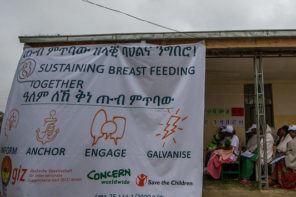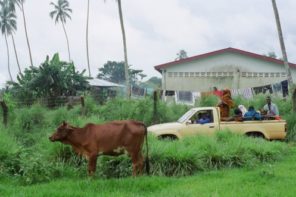Recently on a scholar’s email listserv dealing with Myanmar (Burma) issues, I learned that at some universities in Australia, Singapore, and beyond, scholars intent on doing work in Myanmar (Burma) are now — believe it or not — forced by their own universities to show that they obtained permission from the Myanmar government for their research, not because Myanmar’s government insists on it, but because ethics offices at their own universities demand it — in effect giving a veto over the research to the Myanmar government.
This is puzzling, and raises interesting questions. The Myanmar government is, of course, being charged with genocide at the International Court of Justice in the Hague. The long years of increasing discrimination and persecution against Myanmar’s Rohingya minority made Myanmar lead the world in making people stateless; created refugee flows to neighboring countries, and dismal IDP (Internally Displaced Persons) camps inside Myanmar itself. Then, in August 2017, the country’s military launched a massive violent campaign, burning Rohingya villages and driving inhabitants out at gunpoint, killing many as they went. Massive refugee camps in Bangladesh are now becoming permanent, as Myanmar refuses to guarantee the citizenship and security of anyone that would return home. These crimes have been widely documented, and this forms the basis of the genocide charge brought against Myanmar the country, which now tries to defend itself through its civilian government, which is unrepentant and in denial, while persistently blocking access for impartial observers. But the ICJ issued an unanimous injunction to Myanmar to cease the persecution, which was thereby confirmed, while the adjudication of whether it legally constitutes genocide is proceeding.
The Myanmar government is thus clearly in breach of ethics. It is curious that ethics committees at other countries’ universities would demand that researchers should get approval from the same government.
What could be the purpose of such a procedure — would it be anything more than a pointless, bureaucratic home-turf kabuki show about ethics, an empty performance which probably itself is really both unethical and harmful?
Research should be ethical, but unethical governments should not be given a veto to kill the research. The same must be said for research in, for example, China, and other such places. We all know that China’s economic power is the only reason it isn’t also in international genocide court, over its mass racial profiling system, mass concentration camps, and extermination of Uyghur and other indigenous cultures in Western China also ongoing right now. (I can even sympathize with those who feel it is not fair to single out Myanmar while overlooking China, where the state’s crimes against humanity are on an even larger scale.)
The point is, such governments (Myanmar, China, etc.) should not have an ethics veto over specific research plans designed by scholars who are pursuing the freedom of inquiry promised by their universities — originally set up to further just this sort of inquiry.
Yes, given that the world belongs to nation-states, asking permission to enter the country is unavoidable — but there is no reason to subject researchers to detailed scrutiny of their plans by the host government. Ethics is necessary, but in my view, where the destination country has a government responsible for mass ethical violations, the home university should instead allow scholars to justify the ethical quality of their research plans directly to their university’s ethics committee, and not have it depend on an OK from the government in question.
Worst of all, if scholars are forced to report their interviewees to the government, they may be persecuted. How ethical is that outcome?
I am not saying we should not ask for permission. But who do we ask? We can ask for the informed consent of those we talk to, the appropriate locals, not necessarily the central government.
Remember the American anthropologist David Schneider who insisted on asking permission from the chief of the Pacific island of Yap for his ethnographic fieldwork there. It was granted with a big laugh, with the chief pointing to the armada of American warships anchored in plain view just off the island (Schneider and Handler 1995; cf. Fiskesjö 2013). The United States obviously had the means to force the Yapese to accept an intrusive American researcher. So everyone thought Schneider’s lone request for permission for investigations was very funny. Yet Schneider’s move established something important: Even under circumstances of domination, as an ethnographer one must respect both the locals and one’s own autonomy as a researcher, not just for bureaucratic show, but as a matter of principle. For an anthropologist like Schneider to ask the chief, important as the gesture may have been, still could not be more than the starting point of the negotiations of the myriad ethical issues that inevitably would arise in this new social setting, after this first beginning, and which would inevitably include innumerable decisions on everyday ethics, on his part. (Do you talk to that little girl over there? Is it appropriate? How? When?)

Photo by Oscar Keys on Unsplash
Every fieldworker knows this, and the inevitable implication that everyone must take responsibility for their own ethical decisions, which can’t be pre-scripted, but depends on the “there and then.”
This also highlights the divergence between anthropological fieldwork as a never-ending process of mutual negotiation and learning that can never be divorced from ethics (as it always was, from the beginning of “fieldwork” — e.g. Godfrey Lienhardt’s example; Schmidt 2017), and on the other hand, the legalistic institutional ethics framework particularly in US universities, based in medical science, where obtaining the signature on a form is often conceived as finalizing consent (Metro 2014).
This setup suggests consent is like movie rights, signed away by the research subject.
And this sure is one reason “local people everywhere feel betrayed by anthropology,” as Gabriela Vargas-Cetina put it (2013, 1).
All anthropology in the US, and in many other countries too, is shoehorned into this kind of setup, which in the US is inherited from a biomedical framework — even though the authors of the foundational Belmont report saw clearly that another, different assessment would have to be done for the social sciences which are different from biomedical research. Yet this never happened (cf. American Ethnologist 2006).
I am lucky that at my own university, the Institutional Review Bureau and its human subjects ethics review committee does understand that people in other places may be illiterate, and may well have their own cultural understanding of consent that may differs dramatically from the US/Hollywood understanding. But at other schools, the process is controlled by lawyers who’ll not hesitate to destroy a fieldwork project if it does not conform. In some places, it’s the end of fieldwork.
No doubt those universities in Australia and Singapore and other places who will give a veto over research to genocidal governments like Myanmar’s and China’s, are also preventing some good research from ever taking place, because it did not suit the bureaucrats over there.
This is already awful. But I’d like to take the opportunity to end by pointing out there is an even more lethal flaw in the whole IRB/human subjects ethics system. It, too, stems from the culturally particular biomedical and legalistic framework in which these review processes originated. I am talking about how this system left out the need to study the bad guys — not just human subjects who supposedly sit there and wait for us, and nicely give their consent in good order, so we can proceed with either injecting them with a trial drug, or ask them pre-approved survey questions.
What about the mafia, the vigilantes, the army officers and soldiers, the Communist Party officials, the concentration camp jailers, and so on: We must study them, too; but they will not sign your university-approved consent form.
The current IRB procedures do allow for deceit, but only the hidden deceit built into psychological lab experiments, and so on. But the bad guys are not going to sit down and answer survey questions. They will not let you in; they will block you, or stop you or even harm you.
Yet we do need to know what drives them. Research is about figuring the world out so we can make it better. The current ethics setup risks becoming a recipe for abandoning necessary research on the evils of this world, just because we fetishize “consent” in dubious ways which end up having us dodge the ethics, instead of upholding it, which was the goal to begin with!
Scholars need to ask themselves again if we should perhaps emulate the “Wallraffing” under-cover methods of journalists like the heroic Günther Wallraff, whose famous, lengthy ethnographic-style investigations into various bad guys have typically been carried out in disguise, by pretending to be somebody else.
Wallraff certainly does not grant the bad guys an automatic veto to shut down an ethical quest for the hidden truths which it is ethical to figure out, and expose.
Now, embedding in disguise with Myanmar soldiers in Rakhine, to reveal their methods of village burning and ethnic cleansing, or, signing up as a concentration camp guard in Xinjiang to reveal and analyze the violence against camp detainees, would probably be unsafe, or even impossible to do. But this world is full of injustice that cries out for research, and the current research ethics system needs a rethink. Let’s begin by abolishing the Myanmar government’s veto on research plans.
References
American Ethnologist 33.4 (2006), Special Issue: IRBs, Bureaucratic Regulation, and Academic Freedom.
Fiskesjö, Magnus. Gifts and Debts: The Morality of Fieldwork in the Wa lands on the China-Burma Frontier. In Red Stamps and Gold Stars: Fieldwork Dilemmas in Upland Socialist Asia, ed. Sarah Turner. Vancouver: UBC Press, 2013, 61-79.
Metro, Rosalie. From the Form to the Face to Face: IRBs, Ethnographic Researchers, and Human Subjects Translate Consent. Anthropology & Education Quarterly 45.2 (2014), 167-184.
Schmidt, Mario. Godfrey Lienhardt as a Skeptic; or, Anthropology as Conceptual Puzzle-Solving. Hau: Journal of Ethnographic Theory 7.2 (2017), 351–375.
Schneider, David M., with R. Handler. Schneider on Schneider: The Conversion of the Jews and Other Anthropological Stories. Durham: Duke University Press, 1995.
Vargas-Cetina, Gabriela. Introduction. Anthropology and the Politics of Representation. Tuscaloosa: University of Alabama Press, 2013, 1-15.
Featured image by John Noonan on Unsplash.









